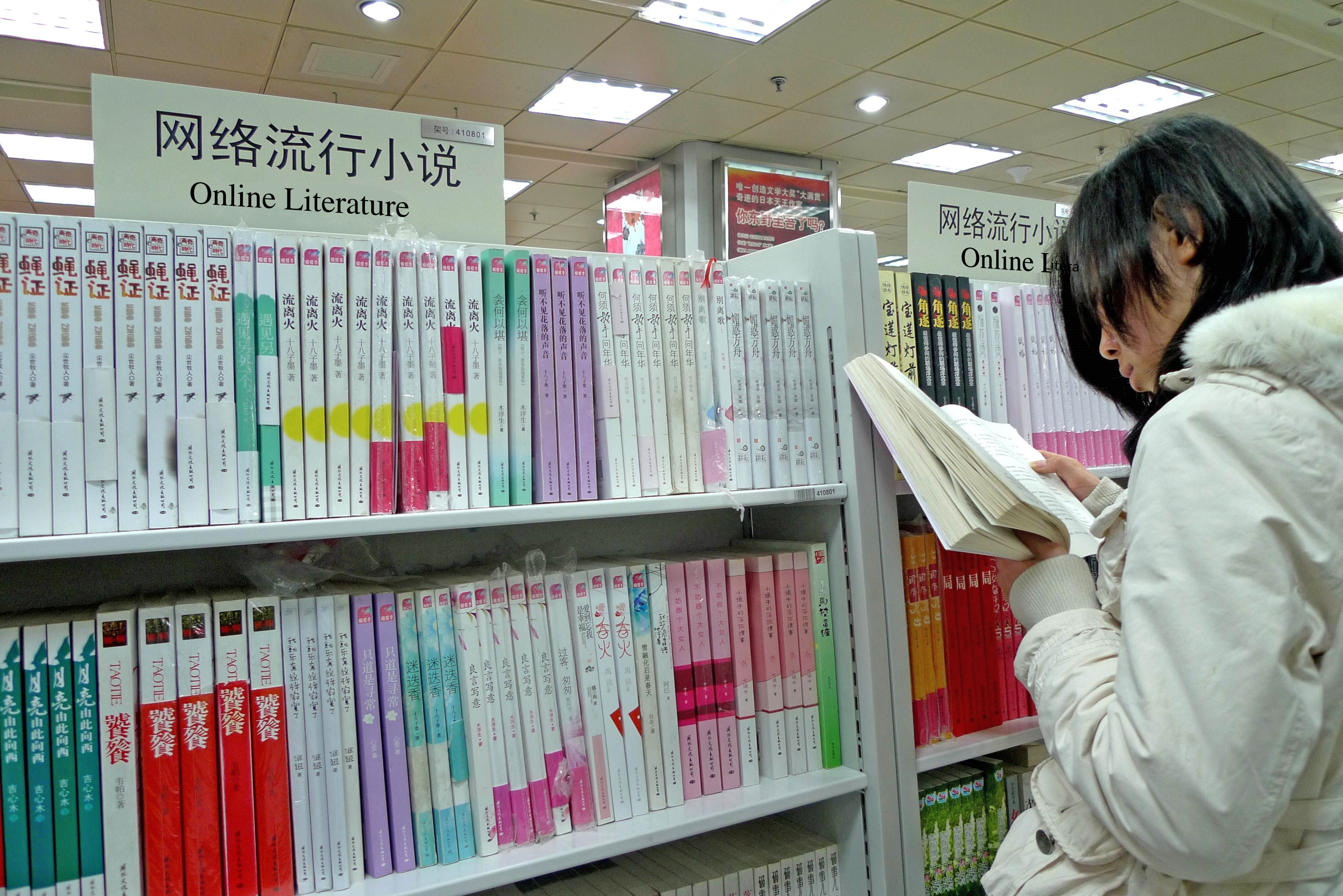New media literature calls for updated criticism methods

Typical of new media literature, online literature has been around for more than a decade, but there is still no mature corresponding literary criticism.
New media literature—defined as literary works that embrace new forms of media such as the Internet—has gone through profound changes with the popular application of electronic media. New media literature poses challenges to the aesthetic habits and evaluation criteria of traditional literary criticism.
Epochal character
New media has profoundly affected the development of Chinese culture. Chen Dingjia, a research fellow from the Institute of Literature at the Chinese Academy of Social Sciences, said that the Internet expands dimensions for literary survival and development, and that multimedia technology provides easy access to high resolution pictures. The two-way communication pattern has triggered a cultural implosion, while in the meantime brought about a distorted cultural ecology. Healthy and sustainable development of cyber-culture and literature requires strengthened construction in new media literary theories and criticism systems.
Shan Xiaoxi, a professor from the College of Humanities of Hangzhou Normal University, defined new media literary criticism as a necessary measure to adapt to literary development in the new media age. It begins with literature and focuses on literary activities as a whole while criticizing new media literary phenomena. Shan said literary criticism should change with the times. When traditional literary texts enter a hypertext environment, the four elements of literary activity, namely “the universe, the audience the artist and the work” proposed by the American scholar M.H. Abrams, are not enough to interpret the current literary phenomena. It is essential to add “media” as the “fifth element” of literary activity to build a new model for literary criticism.
Media integrates the four traditional literary elements into a realistic whole. Media criticism explores the relationship between the work and the media, while reflecting on literary activity as a whole and forming a corresponding new model of literary criticism, Shan said.
Cooperative criticism
New media literary criticism targets the literary phenomena that have emerged from new media. Zhao Yong, a literary professor from Beijing Normal University, said compared with sincere traditional literary criticism, new media literary criticism is terse, forceful and prompt in response. Traditional literary criticism is like the regular army that stresses tactics and strategies, while the new media literary criticism resembles guerrilla forces, unpredictable but frequently holding an ace in the hole, Zhao said.
Bai Ye, dean of the Chinese Contemporary Literature Research Society, said it has been a decade since the emergence of online literature based mainly on genre fiction, but there is still no mature corresponding literary criticism. Current network critics are mainly a small group of people engaged in traditional literary research fields but interested in online literature. They lack cohesion as a team, consensus in critical ideology, macro historical examination skills or integral in-depth research. In this sense, new media literary criticism is still at an early stage.
Potential
New media literary criticism calls for theoretical innovation. Chen pointed out that research should first focus on cultural genres and forms of current new media culture, updating cultural perceptions and not limited by established criticism patterns. Critics should keep up with the cultural practices of the times and be insiders involved in new media. In addition, new media literary criticism should keep an eye on the realistic issues brought forth by new media. In terms of the current problems of “powerless theory” and “inefficient criticism,” adequate commercialized operation could be introduced to stimulate the potential vitality of literary criticism.
Bai said the formation of new media literary criticism requires painstaking joint efforts from multiple parties. It is necessary to study the representative phenomena of new media literature, such as genres of literature, and literary implications as well as the aesthetic orientations involved. Then basic laws and a consensus can be formed. On this basis, it is important to carry out practical and effective criticism so that new media literary criticism holds as much weight as traditional criticism despite the fact that they have different functions and focuses.
Zhao said we should take full advantage of new media, so that literary criticism plays a “criticism” role. Previous literary criticism featured a lot of “praise,” which is counterproductive to the healthy development of literary criticism. In the new media environment in which interference factors are rarer, sincere assessments are easier to find.

 PRINT
PRINT CLOSE
CLOSE